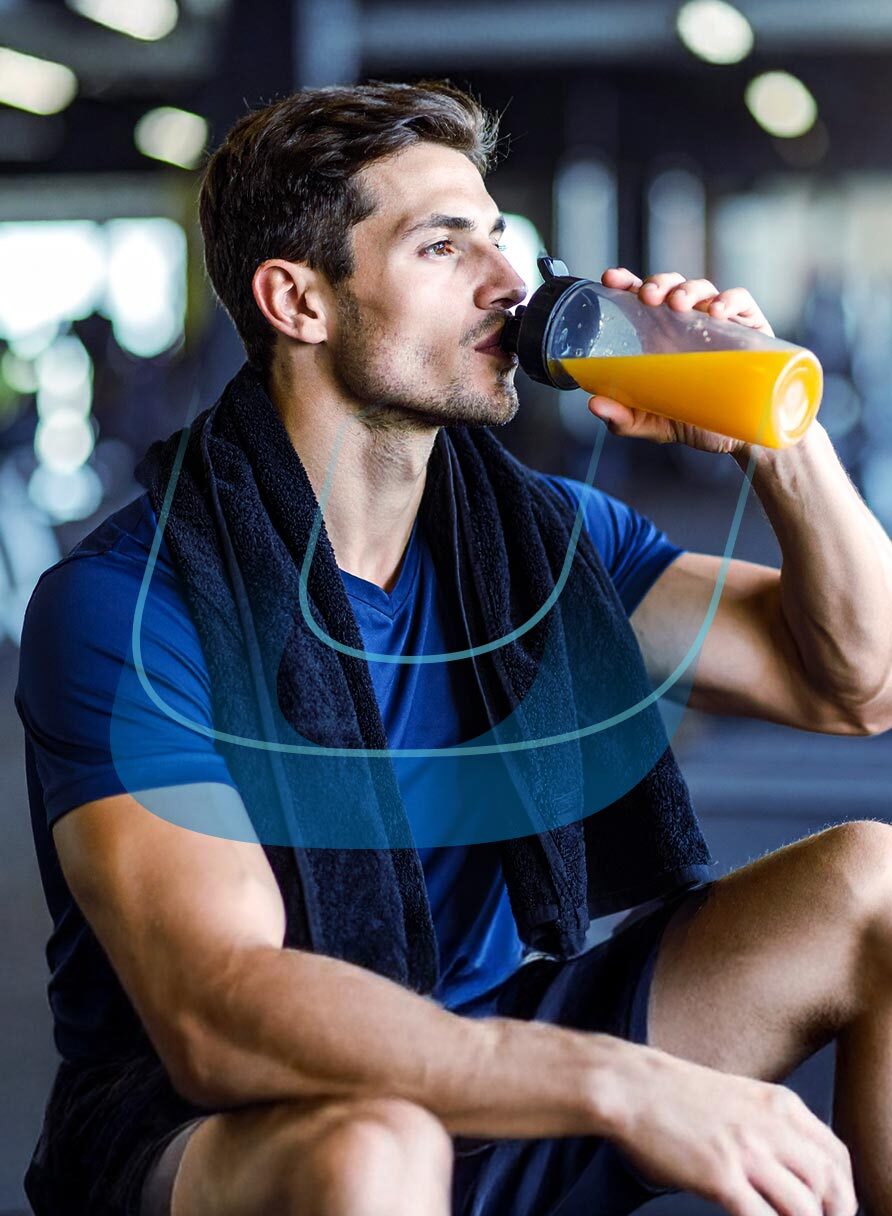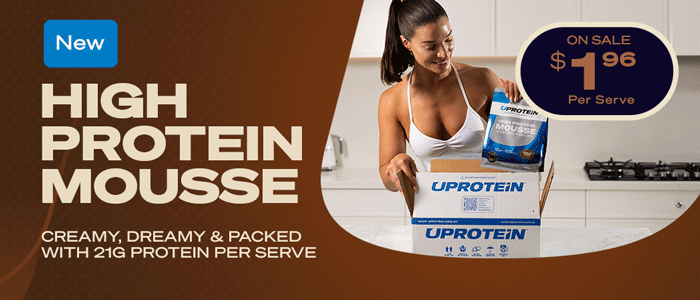Electrolytes Explained: Best Hydration for Everyday Athletes
Posted by UPROTEIN on June 6, 2025

Dr Muriel Moes
8 min read

Electrolytes 101: How They Fit Into Your Supplement Routine and Boost Performance
When you're working out, trying to build strength, or just aiming to feel your best, hydration is key. Most of us reach for water and that's a great place to start. But if you're regularly training, sweating, or taking other supplements like protein powder, it’s worth understanding where electrolytes come in and how they can support your performance and recovery.
Let’s break down what electrolytes are, when you might need them, and how they fit into a healthy sports nutrition routine.

What Are Electrolytes and Why Should You Care?
Electrolytes are minerals your body needs to function. They include sodium, potassium, calcium, magnesium, and chloride, and they carry electrical charges that help regulate muscle contractions, fluid balance, and nerve signals. Basically, without electrolytes, your muscles (including your heart) don’t work properly, and your hydration levels can get out of whack. Even if you’ve seen electrolytes in sports drinks or powder packets, they’re also found in whole foods like bananas, oranges, dairy, leafy greens, and even salty snacks.
Why Do Electrolytes Matter for Active People?
If you're someone who:
- Works out regularly, especially in hot or humid conditions.
- Does endurance or high-intensity training (think long runs, HIIT (high intensity interval training), heavy lifting.
- Sweats a lot during exercise.
- Uses protein powders or other supplements, like creatine monohydrate powder, that increase water needs.
... then electrolytes could be a useful addition to your routine to support your recovery faster.
That’s because when you sweat, you’re not just losing water, you’re also losing these key minerals. Replacing both fluids and electrolytes is essential to avoid dehydration, muscle cramps, and post-workout fatigue.
Water vs Electrolytes: Which Do You Need?
Here’s a quick guide to help you decide:
Stick with water if:
- Your workouts are under an 45 minutes and not intense.
- You're staying indoors or in cool conditions.
- You’re just going about your regular day (not training hard).
Water is great for everyday hydration. It’s calorie free, easy to access, and helps your body flush out toxins.
Reach for electrolytes if:
- You’re training in hot weather or sweating heavily.
- You’re doing long or back-to-back sessions with little recovery time.
- You’re playing competitive sport and have limited time to consume fluids.
- You’re feeling signs of dehydration like fatigue, dizziness, or cramps.
- You’ve been sick with vomiting or diarrhoea and need to rehydrate fast.
In these cases, electrolyte drinks or powders can quickly help restore what’s lost and support your recovery.
How Do Electrolytes Work With Other Supplements?
If you’re already taking protein powder, creatine, or other fitness supplements, you might be drinking more water already great! But keep in mind, these products often increase fluid needs, especially if they draw water into your muscles (like creatine does).
Adding electrolytes can help you:
- Maintain the right fluid balance.
- Avoid bloating or cramping from too much plain water.
- Boost endurance and reduce fatigue in longer sessions.
- Support rapid rehydration after more intense exercise
It’s all about balance. Think of electrolytes as a support team for your hydration game, especially on those hard hitting training days.
Pro tip: If supplementing with creatine, consider Creatine Hydrate or Creatine Energy. These products combine creatine with electrolytes and carbs for efficient and faster uptake, meaning optimal absorption and one less supplement to buy and take.
What Kind of Electrolyte Products Are Best?
There are loads of options: sports drinks, tablets, electrolyte powders, and even natural sources like coconut water.
Here’s what to look for:
- A mix of sodium, potassium, calcium and magnesium.
- Low sugar or sugar-free formulas if you're calories.
- Added carbohydrates to support the fast uptake of minerals.
- Aim for 50c per serve for electrolytes or $1.20 per serve for more advanced formulas including creatine or caffeine.
Pro tip: If you’ve got a salty sweat (you see white streaks on your workout gear), you may benefit from sodium-heavy products. But if your diet already includes salty foods or processed snacks, you might not need a high-sodium supplement.
Don’t Forget: Food Counts Too
Whole foods are still your best long-term strategy. You’ll find electrolytes naturally in:
Here’s what to look for:
- Bananas (potassium).
- Leafy greens like spinach (magnesium).
- Dairy products like yogurt (calcium).
- Table salt or salty snacks (sodium).
So if you're fueling up with a balanced diet and only training moderately, you might not need to supplement at all.
Final Hydration Thoughts
Electrolytes aren’t just for elite athletes or marathon runners. If you’re sweating hard, training often, or using other performance supplements, they can be a smart addition to your hydration supplements stack.
Start simple: use water for most days, and bring in electrolytes when your workouts or recovery demand a little extra support.
As always, if you’ve got any health concerns or conditions that affect fluid balance (like kidney issues or high blood pressure), check in with a healthcare provider for personalised advice.
Note: This article is general in nature and isn’t a substitute for medical advice. If you're unsure about your electrolyte or hydration needs, speak to a health professional.





